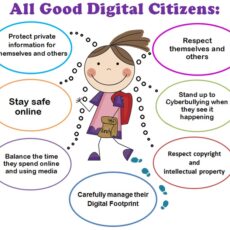Addiction to video games symptoms and treatment

From the 1970s, video games captured the imagination of America. Modern video game addiction was known at the time as a process addiction, identical to compulsive gambling. Introverted young children found that they could avoid interaction with real peers, instead engaging the most with more experienced people through games or in the form of engaging characters with awe-inspiring traits.
These days, games are some of the most popular features of social network sites and can be played almost constantly on mobile phones or on computers. In early times of video games almost all games were available only as an arcade machine and were not available 24/7.
Is video game addiction real?
Studies show 90% of Gamers do not play in any way which causes negative long-term effects. A significant portion of people, however can get addicted to any video game and thus struggle with mental, social and behavioural matters. The World Health Organization [WHO] (2018) has recently included “gaming disorders” in the list of mental health conditions. According to WHO this affliction is a “persistent or recurrent behavior pattern of sufficient severity to result in significant impairment in personal, family, social, educational, occupational or other important areas of functioning.” Studies have shown that when playing video games (VG), addicted gamers have a sense of well being or euphoria while playing, an inability to stop the activity, craving more time for playing VG, feeling empty, depressed, and irritable when not playing VG. The pernicious consequences these symptoms have intrude dramatically on the private, social and professional life.
The disruption of health by gaming
Case studies have reported adverse health effects of playing video games, including auditory hallucinations, wrist pain, neck pain, elbow pain, tenosynovitis, hand-arm vibration syndrome, repetitive strain injuries, peripheral neuropathy, and obesity. Some of these adverse effects seem to be rare and many resolve when the patients no longer play the games.
On balance, given that video game playing is highly prevalent among children and adolescents in industrialised countries, there is little evidence that moderate frequency of play has serious acute adverse effects. Adverse effects, when they occur, tend to be relatively minor and temporary, resolving spontaneously with decreased frequency of play.
What causes video game addiction?
Video games offer unending adventure in a fantasy world where a gamer can live essentially a different life as a new person. They offer a way of escape from reality and leave behind the actual problems of real life. For most addicted gamers, playing video games is not just a good excuse, it’s part of the child’s social life but is an apex of their confidence.and acceptance within the group. Video games available on social sites closely correlate to social media addiction, another behavioral disorder which thrives on the feeling of acceptance. This desire for escapism or social acceptance has been found to be one of the main causes of video game addiction and other mental problems.
The signs and effects of video game addiction

Daniel Block is an Award-winning board-certified psychiatrist and currently holds private practice in Pennsylvania. He states that video games addiction is compulsive use of a video game and causes interference to other situations in the user’s life. Daniel Block states: “This is a growing concern for parents since gaming increasingly is commonplace and targeted at young people.”
Video game addiction is currently not recognized as an addictive disorders by the Diagnostic and Statistical Manual of Mental Disorders. Researchers believe that winning or playing such games increases the users concentration of dopamine, a neuro-chemical that enhances the sense to feeling and produces a rush of energy. Adults who want more time playing video games forgo taking part in work activities, pursuing hobbies or putting time into their partners. Another characteristic of addictive behaviour is an obsessive desire to play games and neglect real-life activities or duties. How do doctors determine that gaming has turned out to be an addiction? Here are some key warning indicators.
Obsessive behaviour
“By obsession, we mean the child will play video games, and play it more at the detriment of other things around their lives falling down around them,” says Dr Joanne Orlando of Western Sydney University. If their school work or health declines, or they’re losing friends to video games, that’s a warning sign. “Look for a real and increasing obsession.”
When it’s more than a phase
Squabbling over the controller isn’t a cause for concern – it happens. Gaming addiction requires such behaviour to extend over 12 months. But that doesn’t mean waiting a year without doing anything. Parents sensing addiction rise over that time should step in and talk to their child. Keep a diary of your observations which will be very useful if you decide to refer your child to a doctor or specialist.
Get a second opinion
You may be convinced of addiction and but your doctor says otherwise. But gaming addiction is new and not always understood. “Your local doctor won’t necessarily know how to help you, nor would every single psychologist,” says Orlando. Seeking out someone who knows their stuff is vital.
Rule out other issues
Gaming addiction may not be the root cause of a child playing games. “If parents are worried, it might also be important to consider what else is happening in the child’s life at the time,” says Orlando. A sad event or major health condition can be a trigger for children to escape into video games, and some parents report the games can be a force for good in these circumstances
Are there different types of video game addictions?

Video games are played typically by one player. These video games have a clear goal of a certain purpose as with Princess Rescue. Online multiplayer game is particularly addictive due to their unfinished content which never ends.
Gaming addicts like creating and temporarily becoming an online character. For many, it’s the place they feel as important as others. For others it may an escape from the reality and a place where they feel they have more acceptance. For some players with this addiction it’s a space to escape reality and to establish relationships with other online players.
Video Game Addiction: A Worldwide Issue
Some Asian countries such as Korea or China regard video game addiction as something urgently important. This phenomenon in the United States is much harder to estimate with the most computers mainly in private homes but less commonplace at public facilities. Case studies show similarities between the characteristics defining addiction versus cultures, indicating it is similar across cultures. In the United States the prevalence of addiction is less than in the United Kingdom, however case studies indicate that this phenomenon is similar to gambling addiction in other cultures.
Popular Beliefs About Video Games
Research suggests that driving the addictive quality of video games may not be due to addictive response but rather to a psychological phenomenon called flows. Flow occurs in activities where we lose ourselves in the activity of doing something. Sometimes this process may turn to compulsion in a situation where the user cannot stop. Video Games have both positive and negative characteristics but it’s often dependent on the player’s attitude to the games and life at large.
Why is video game addiction so prevalent?
Currently there is no scientific consensus about which games can lead to addiction. The American Psychiatric Association has classified IgD as an unidentified potential diagnosis that requires review. The APA defines addiction as the result of compulsive addiction despite its harmful consequences. It effectively excludes the possibility of any behavioral addiction. Only a tiny segment of gamers show any sign of any kind of illness especially the particular symptoms that accompany withdrawal and tolerance. Some scientists and researchers believe that overuse in gaming is a habit or one sign or effect of some other disease type.
How can I get help for my child’s addiction to video games?
There are programs all over the nation as well as in-person groups and online resources dedicated to helping children (and adults) break free from video game addictions. If you’re looking to stop your child’s addiction to gaming, seek professional help. This is especially important if the child is exhibiting signs of negative and/or destructive behaviours A serious problem with video gamers may demand drastic solutions. If you wish to know more about treatments please call a designated treatment provider or your family doctor.




